Start HLS - Flutter
Before starting the HLS, the prequisite steps require you to have a VideoSDK Meeting running which you want to use for interactive livestream. To learn more about setting up a interactive live streaming, you can follow the steps here in the quick start guide.
Important Changes Flutter SDK in Version v1.3.0
- The following modes have been deprecated:
CONFERENCEhas been replaced bySEND_AND_RECVVIEWERhas been replaced bySIGNALLING_ONLY
Please update your implementation to use the new modes.
⚠️ Compatibility Notice:
To ensure a seamless meeting experience, all participants must use the same SDK version.
Do not mix version v1.3.0 + with older versions, as it may cause significant conflicts.
Starting HLS
startHls() can be used to start a interactive livestream of the meeting which can be accessed from the Room object. This method accepts one parameter:
config (optional): This parameter will define how the livestream layout should look like.
Map<String, dynamic> config = {
// Layout Configuration
"layout": {
"type": "GRID", // "SPOTLIGHT" | "SIDEBAR", Default : "GRID"
"priority": "SPEAKER", // "PIN", Default : "SPEAKER"
"gridSize": 4, // MAX : 4
},
// Theme of recording
"theme": "DARK", // "LIGHT" | "DEFAULT"
// `mode` is used to either record video & audio both or only audio.
"mode": "video-and-audio", // "audio", Default : "video-and-audio"
// Quality of recording and is only applicable to `video-and-audio` type mode.
"quality": "high", /* Default : "med"
"low" (SD HLS) | "med" (HD HLS) | "high" (FHD HLS) */
// This mode refers to orientation of recording.
// landscape : Record the meeting in horizontally
// portrait : Record the meeting in vertically (Best for mobile view)
"orientation": "landscape", // "portrait", Default : "landscape"
};
room.startHls(config: config);
If you want only the SEND_AND_RECV participants to be seen in the livestream, you can pin all the participants in the SEND_AND_RECV mode and start the livestream with the SPOTLIGHT layout and PIN as the PRIORITY.
Example
import 'package:flutter/material.dart';
import 'package:videosdk/videosdk.dart';
class MeetingScreen extends StatefulWidget {
...
}
class _MeetingScreenState extends State<MeetingScreen> {
late Room _room;
@override
void initState() {
...
}
@override
Widget build(BuildContext context) {
return Column(
children:[
ElevatedButton(
onPressed:(){
Map<String, dynamic> config = {
"layout": {
"type": "GRID",
"priority": "SPEAKER",
"gridSize": 4,
},
"theme": "DARK",
"mode": "video-and-audio",
"quality": "high",
"orientation": "portrait",
};
_room.startHls(config: config);
},
child: const Text("Start HLS"),
),
]
);
}
}
Understanding Layouts
1. GRID Layout
This layout is default layout if no participants are pinned, it will look same as a normal meeting grid layout, when any participant is pinned that participant will be moved on top of the main screen grid above all non pinned participants
While screenshare as well the main view will contain only screenshare media but the side panel view of participant grid will maintain same order of pinned and unpinned participants.
| Grid | Grid with Screenshare |
|---|---|
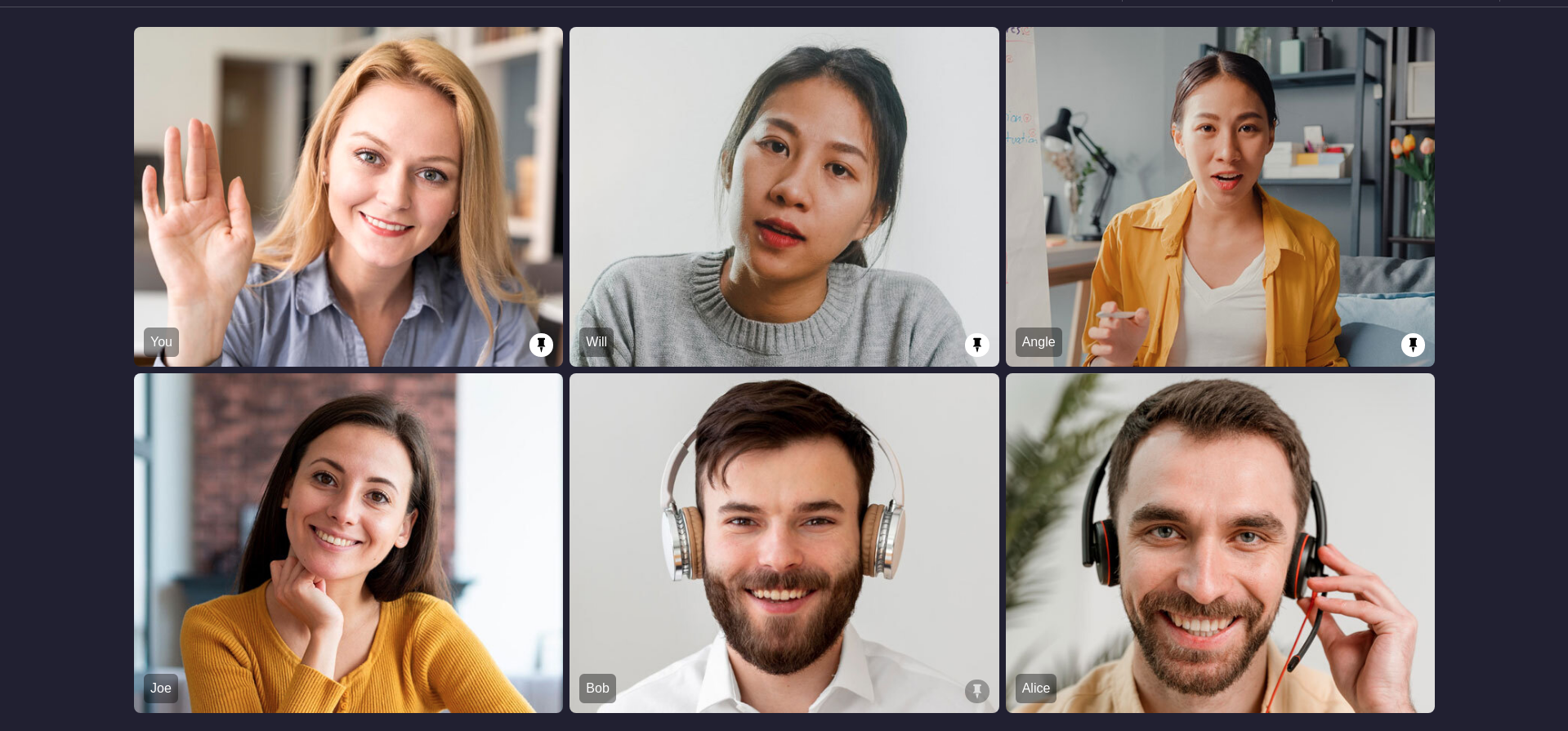 | 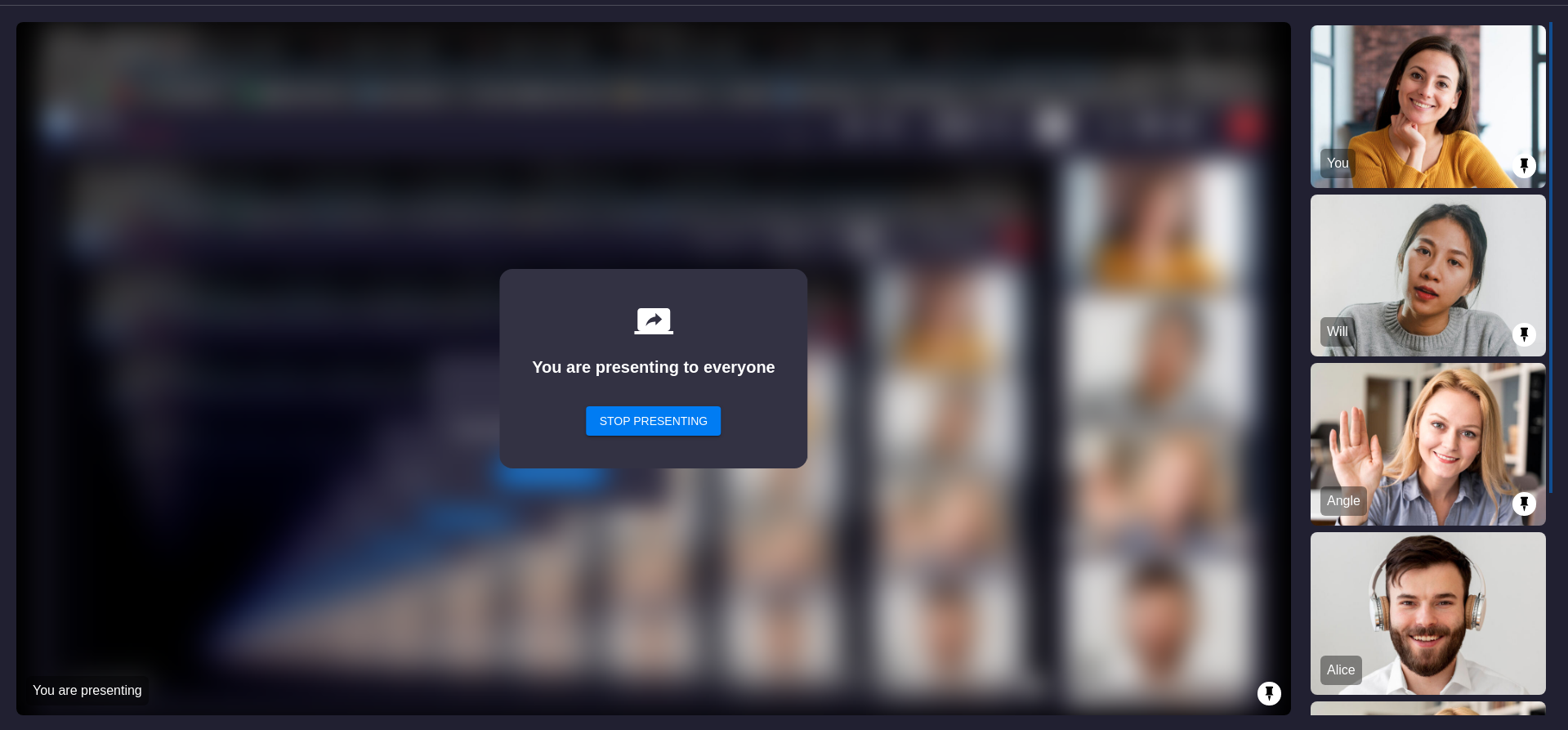 |
2. SIDEBAR Layout
This layout will have one main screen view and other sidebar grid layout. Only pinned participant will be visible in this layout, all unpinned participants will not be visible in this layout. If more than one participant is pinned then the first participant who was pinned will appear in main screen layout and all other remaining pinned particiapants will be visible in sidebar.
If any pinned participant started screenshare then the screenshare media will be visible in main screen layout and all other pinned participants webcam view will be visible in sidebar
| Sidebar | Sidebar with Screenshare |
|---|---|
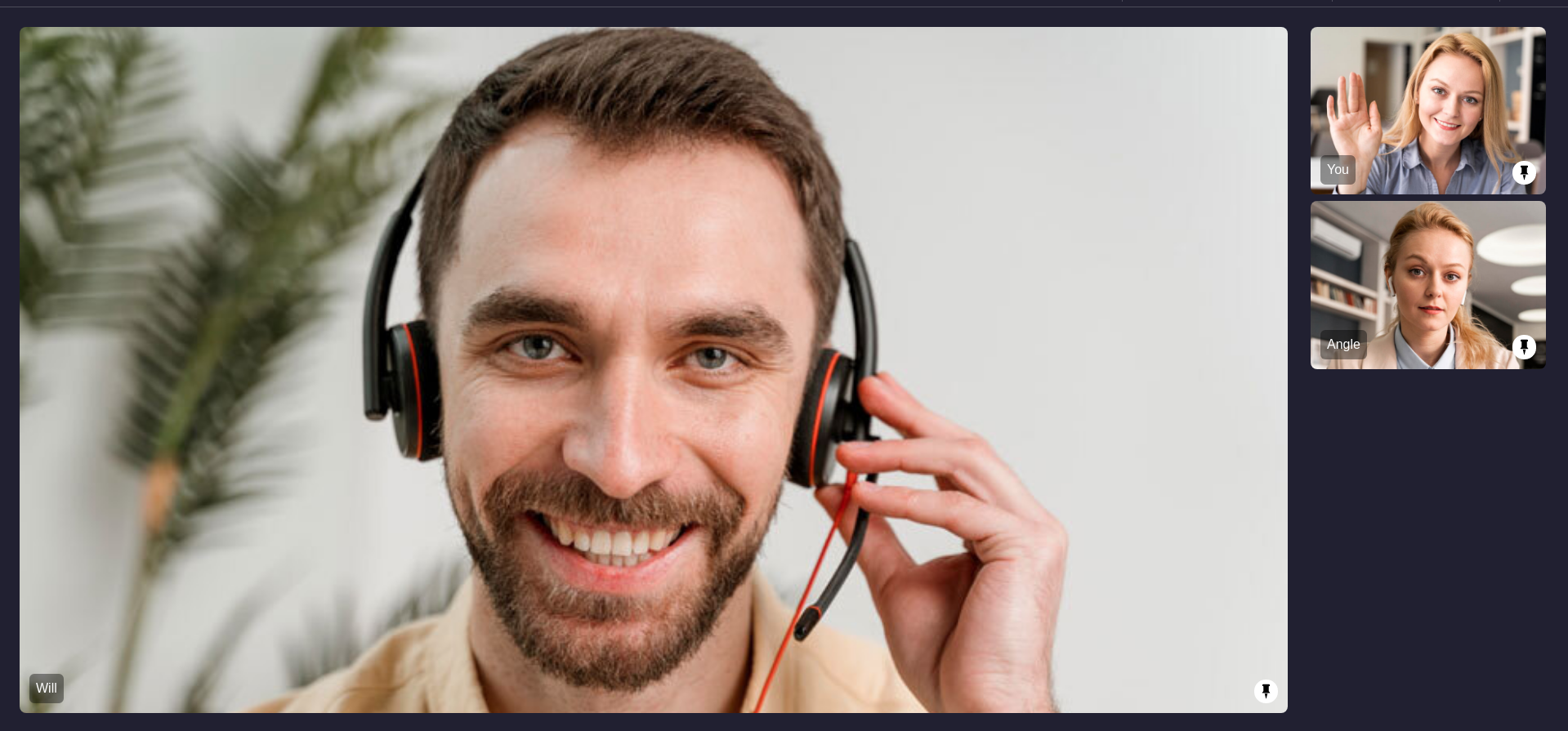 | 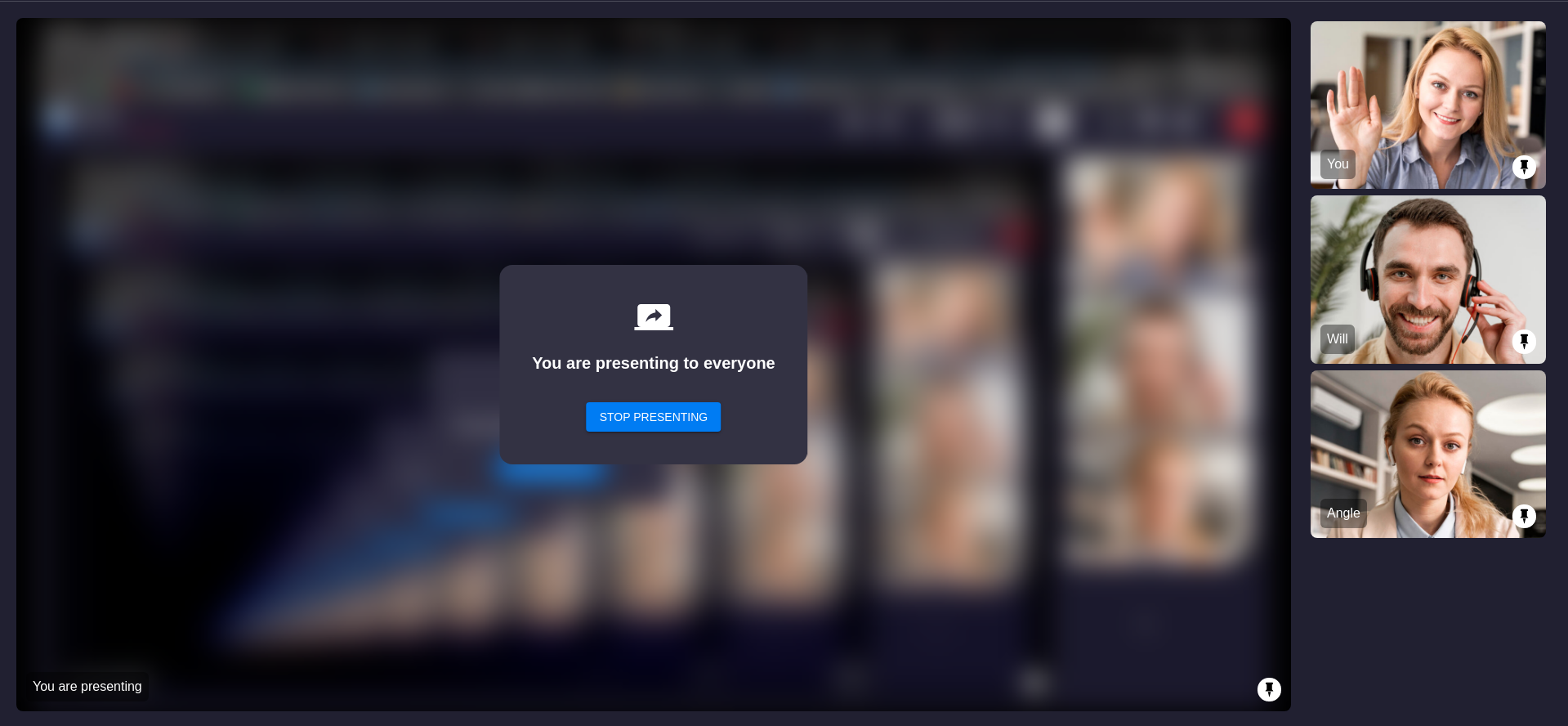 |
3. SPOTLIGHT Layout
This layout will only contain main screen layout, multiple pinned participants will be visible in main screen view. Same as SIDEBAR layout only pinned participants will be visible in main screen.
If any pinned participant started screenshare then only screenshare view will be visible in main screen, no webcam view will be visible when any pinned participant started screenshare.
| Spotlight | Spotlight with Screenshare |
|---|---|
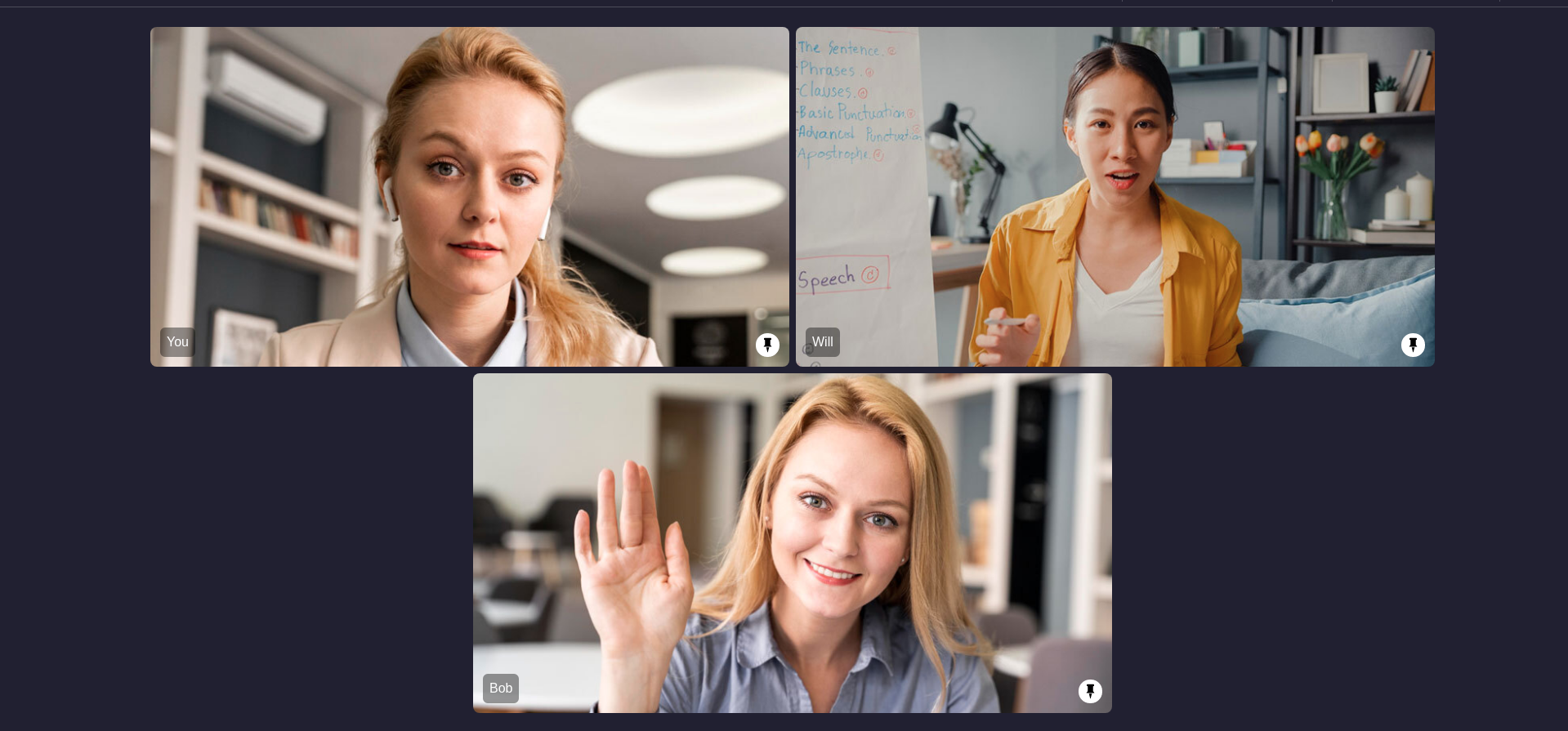 | 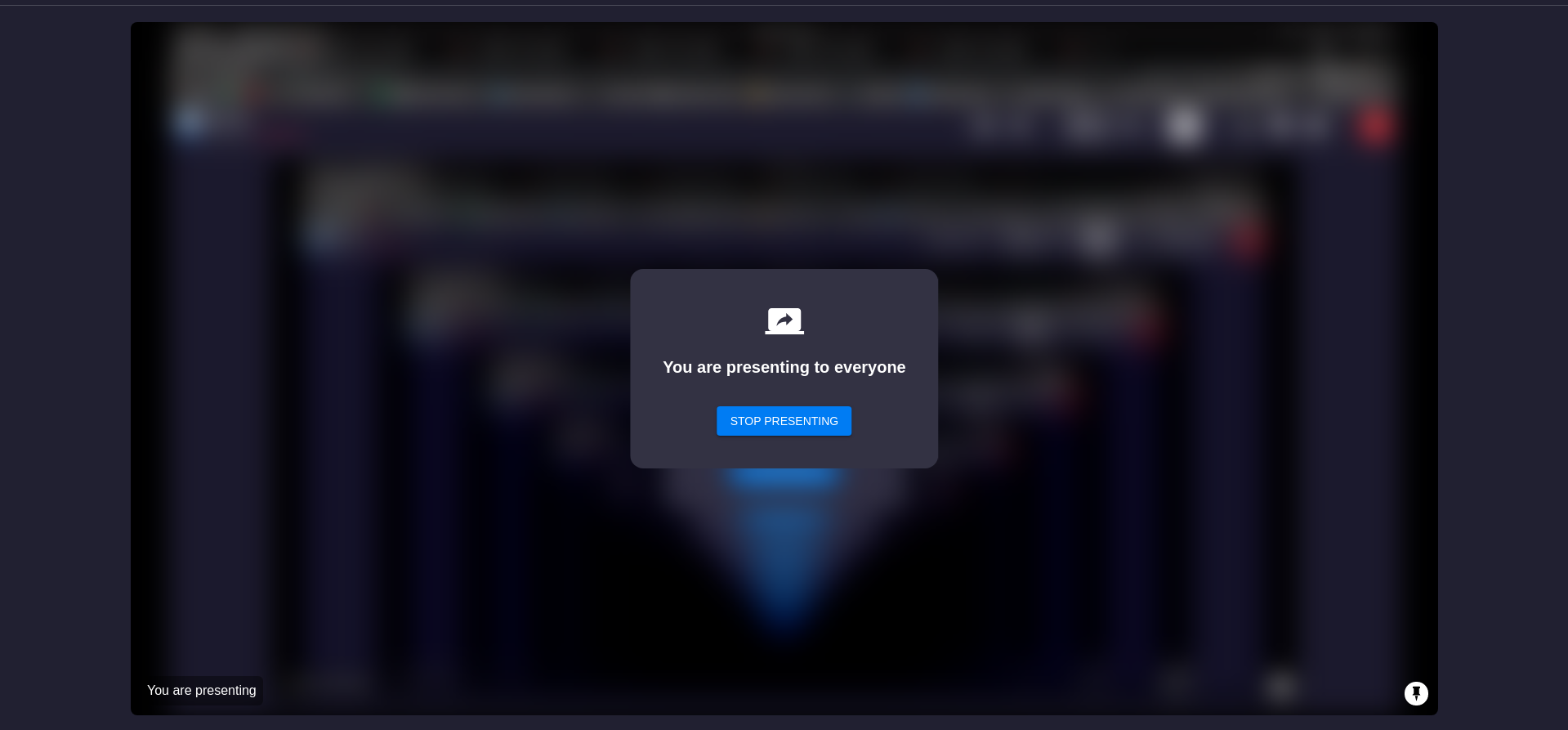 |
Event associated with HLS
-
hlsStateChanged - Whenever meeting HLS state changes, then
hlsStateChangedevent will trigger. -
You can get the
playbackHlsUrlandlivestreamUrlof the HLS to play it on the Viewer side when the state changes toHLS_PLAYABLEplaybackHlsUrl- Live HLS with playback supportlivestreamUrl- Live HLS without playback support
downstreamUrl is now depecated. Use playbackHlsUrl or livestreamUrl in place of downstreamUrl
import 'package:flutter/material.dart';
import 'package:videosdk/videosdk.dart';
class MeetingScreen extends StatefulWidget {
...
}
class _MeetingScreenState extends State<MeetingScreen> {
late Room room;
@override
void initState() {
...
setupRoomEventListener();
}
@override
Widget build(BuildContext context) {
return YourMeetingWidget();
}
void setupRoomEventListener() {
room.on(Events.hlsStateChanged, (Map<String, dynamic> data) {
//Status can be :: HLS_STARTING
//Status can be :: HLS_STARTED
//Status can be :: HLS_PLAYABLE
//Status can be :: HLS_STOPPING
//Status can be :: HLS_STOPPED
log("Meeting HLS status : ${data['status']}");
if (data['status'] == "HLS_PLAYABLE")
log("PLAYBACKHLS URL -- " + data['playbackHlsUrl']);
});
}
}
Custom Template
With VideoSDK, you can also use your own custom designed layout template to livestream the meetings. In order to use the custom template, you need to create a template for which you can follow this guide. Once you have setup the template, you can use the REST API to start the livestream with the templateURL parameter.
API Reference
The API references for all the methods utilized in this guide are provided below.
Got a Question? Ask us on discord

